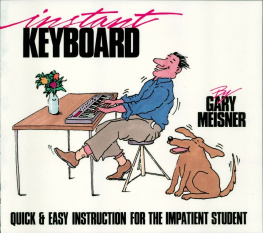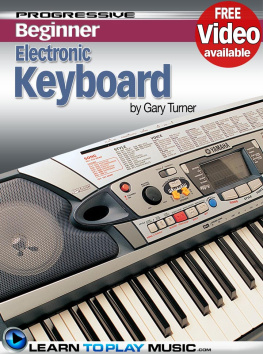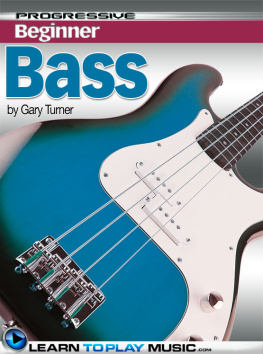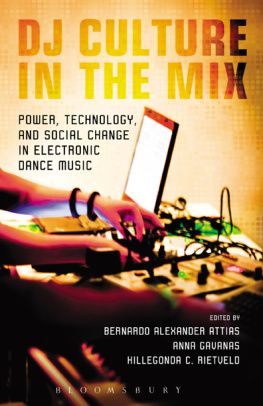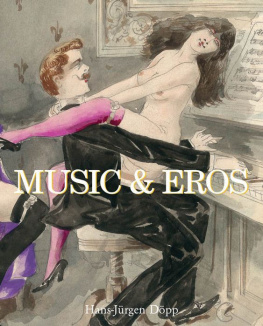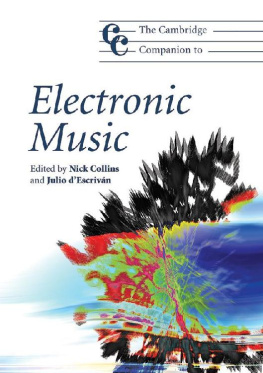Kirn - Keyboard Presents the Evolution of Electronic Dance Music
Here you can read online Kirn - Keyboard Presents the Evolution of Electronic Dance Music full text of the book (entire story) in english for free. Download pdf and epub, get meaning, cover and reviews about this ebook. City: United States, year: 2011;2013, publisher: Hal Leonard Corp, genre: Romance novel. Description of the work, (preface) as well as reviews are available. Best literature library LitArk.com created for fans of good reading and offers a wide selection of genres:
Romance novel
Science fiction
Adventure
Detective
Science
History
Home and family
Prose
Art
Politics
Computer
Non-fiction
Religion
Business
Children
Humor
Choose a favorite category and find really read worthwhile books. Enjoy immersion in the world of imagination, feel the emotions of the characters or learn something new for yourself, make an fascinating discovery.
- Book:Keyboard Presents the Evolution of Electronic Dance Music
- Author:
- Publisher:Hal Leonard Corp
- Genre:
- Year:2011;2013
- City:United States
- Rating:4 / 5
- Favourites:Add to favourites
- Your mark:
- 80
- 1
- 2
- 3
- 4
- 5
Keyboard Presents the Evolution of Electronic Dance Music: summary, description and annotation
We offer to read an annotation, description, summary or preface (depends on what the author of the book "Keyboard Presents the Evolution of Electronic Dance Music" wrote himself). If you haven't found the necessary information about the book — write in the comments, we will try to find it.
Kirn: author's other books
Who wrote Keyboard Presents the Evolution of Electronic Dance Music? Find out the surname, the name of the author of the book and a list of all author's works by series.
Keyboard Presents the Evolution of Electronic Dance Music — read online for free the complete book (whole text) full work
Below is the text of the book, divided by pages. System saving the place of the last page read, allows you to conveniently read the book "Keyboard Presents the Evolution of Electronic Dance Music" online for free, without having to search again every time where you left off. Put a bookmark, and you can go to the page where you finished reading at any time.
Font size:
Interval:
Bookmark:
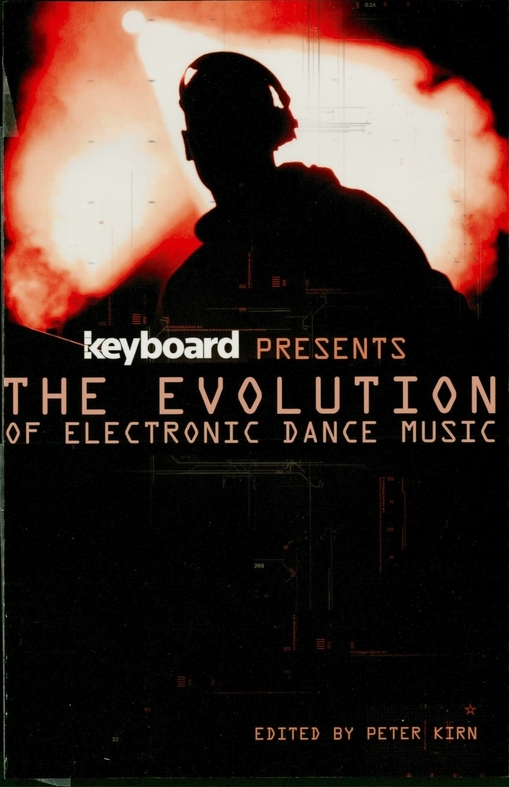
Kaftwerk.
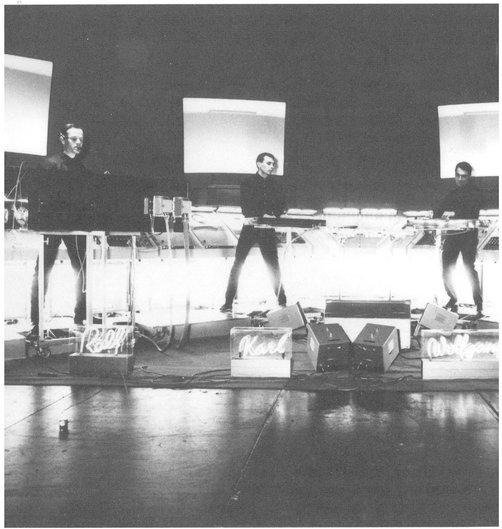
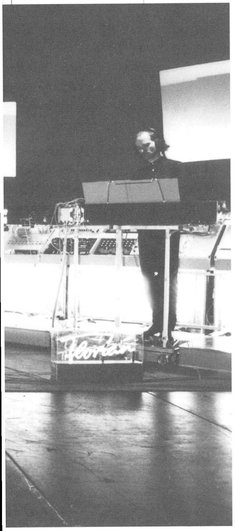
By Jim Aikin  Keyboard, March 1982
Keyboard, March 1982

E lectronic dance music could start almost anywhere, but Kraftwerk is a fitting on-ramp. What seemed at first pastiche proved prophetic: Kraftwerks quirky journeys along the Autobahn and experiments with pocket calculators proved to hold in them the seed for a new direction of music. The bands musical idiom and technological devices presaged electronic dance musics to come, while being rooted in rock. But more than that, Kraftwerk pointed to a new musical futurism, one that re-imagined the musical relationship to new technologies. Keyboards Jim Aikin, himself a published science-fiction writer, is a fitting voice to lead us into that world. Kraftwerks techno-futurism laid the groundwork for techno, for Juan Atkins, for designing sounds on the PC. But Keyboard visits them here before any of those influences had come to fruition, as the German artists are synthesizing just that new futurist approach.PK
Once upon a time, the future was something that hadnt happened yet. It lay up ahead of us somewhere in the distance, filled with an unknown potential whose features and even outlines were unguessable. But during the 20th century, an extremely odd thing has happened. In the 1920s, science-fiction writers began developing detailed scenarios of what the future would be like, and since World War II the technology for making those scenarios come true has been expanding at an unprecedented rate. By now, our sense of history as a linear progression into the future has collapsed. Were living in the future today; theres no way to escape from it.
America is very shy when it comes to electronics. Its still a highly schizophrenic situation. People have all the latest stateoftheart technology, and yet they put wood panels on the front to make them feel comfortable.
RALF HUTTER (KRAFTWERK)
Most of us have ambivalent feelings about the future. On the one hand, were happy to take advantage of the products and processes it offers. We get instant cash from automatic bank teller machines, play with computer and video games, use articles made of plastic and other synthetic materials dozens of times a day, talk to our relatives long-distance via satellite relay, and hop on jets that take us to Europe in six hours. But on the other hand, the future makes us uneasysometimes very uneasy. Were not happy about having computerized dossiers on our private lives hidden in secret government memory banks. Were disturbed by the way eight-lane freeways (to say nothing of strip mines) deface the landscape. We yearn for simple answers to the bewilderingly complex social problems that erupt at every turn. We want to feel that were important and unique as individuals, not just faceless, interchangeable units in a giant machine.
Kraftwerk is a group of four musicians who play their own unusual brand of electronic rock, using synthesizers and related hardware. But thats not the whole story. More important, Kraftwerk is a visionary stance, a philosophical alternative, a suggestion that we might develop an entirely different attitude about living in the future. This accounts for the extreme, almost obsessive nature of their musicand perhaps it also explains why they havent been more widely accepted in the United States. We may not be ready for their message yet.
The message is that we can develop a friendly, relaxed, accepting attitude toward working and living with machines. Most of us still feel obscurely threatened by machines depersonalized and mechanical are dirty words. According to Kraftwerk spokesman Ralf Hutter, America is very shy when it comes to electronics. Its still a highly schizophrenic situation. People have all the latest state-of-the-art technology, and yet they put wood panels on the front to make them feel comfortable. Or they develop new plastics and try to imitate the appearance of wood. They use modern technology to try to re-create the Middle Ages. This is stupid. In contrast, Kraftwerks custom-built musical equipment looks like what it is. We go more for the minimalist or direct approach, Hutter explains. Technology as an arttechnology as it is. We have nothing to hide.
This attitude has obvious roots in the Bauhaus school of functionalist architecture that flourished in the 20s, in which pips, wiring, and girders were frequently exposed rather than hidden behind walls. But Kraftwerks preoccupation with technology stems more directly from the predominantly industrial environment of Dusseldorf in the 50s and 60s, where Hutter and co-founder Florian Schneider grew up. Although their music today seems to be firmly based in rock, they both studied traditional classical music at the Dusseldorf Conservatory, Hutter studying piano and Schneider flute, and then moved on to performing improvised avant-garde music. At that time, Hutter recalls, the only places we could find to play were at universities and art museums. Musical clubs wouldnt book us. The music world is very reactionary, isnt it? Its all about ticket sales.
The first problem we faced, he goes on, was to find the type of music we wanted to play. So we started out with pure sound. Florian had an amplified flute, and I had some contact microphones which I put on metal plates. Also, we used to put contact mics on my clothing so that the sounds I made by moving were part of the music. Even at this early stage, they were breaking down the barriers between performer and instrument, between man and machine. One of the reasons they stopped using conventional instruments (an early incarnation of Kraftwerk, prior to 1974, actually had a guitarist) was that these instruments imply conventional relationships between the performer and the instrument and thus produce a conventional sort of music with which the listener then has a conventional relationship. In place of this, Hutter and Schneider have experimented with using such unusual interfaces as beams of light that could be interrupted, like electric-eye door openers, to trigger musical effects with the body, The ultimate, they feel, would be an instrument that instantly produces whatever sound you can think of by a direct link with the mind. This would imply a complete symbiosis of organism and technology.
In 1970 Hutter and Schneider established their own recording studio, which they called Kling Klang, a German word that means just what you think it means. Hutter owned a Farfisa organ, and in 1971 they acquired their first synthesizers. A Minimoog, we asked? An ARP 2600? Hutter was vague. Yeah, mostly those, he replied. We had all the small models from all the different major brands. We had an English one [probably an EMS Synthi]. Sometimes they were very nice. But they dont make them anymore. Today they are already antiques. By now we have sold them or given them to other people. Most of their equipment today is custom-built.
During the next few years they released several albums that were distributed only in Europe. But popular acceptance was slow. Germany is a cultural vacuum, Hutter explains. All the music on the radio was Anglo-American when we started. We had a German name and we sang in German, so they wouldnt play us on the radio. People were very upset, because nobody was supposed to do this kind of thing. We didnt have a living of music of our own in Germany. It has only been in the last ten years that there has been a cultural awakening. Now there is a lot of German electronic music.
Font size:
Interval:
Bookmark:
Similar books «Keyboard Presents the Evolution of Electronic Dance Music»
Look at similar books to Keyboard Presents the Evolution of Electronic Dance Music. We have selected literature similar in name and meaning in the hope of providing readers with more options to find new, interesting, not yet read works.
Discussion, reviews of the book Keyboard Presents the Evolution of Electronic Dance Music and just readers' own opinions. Leave your comments, write what you think about the work, its meaning or the main characters. Specify what exactly you liked and what you didn't like, and why you think so.


